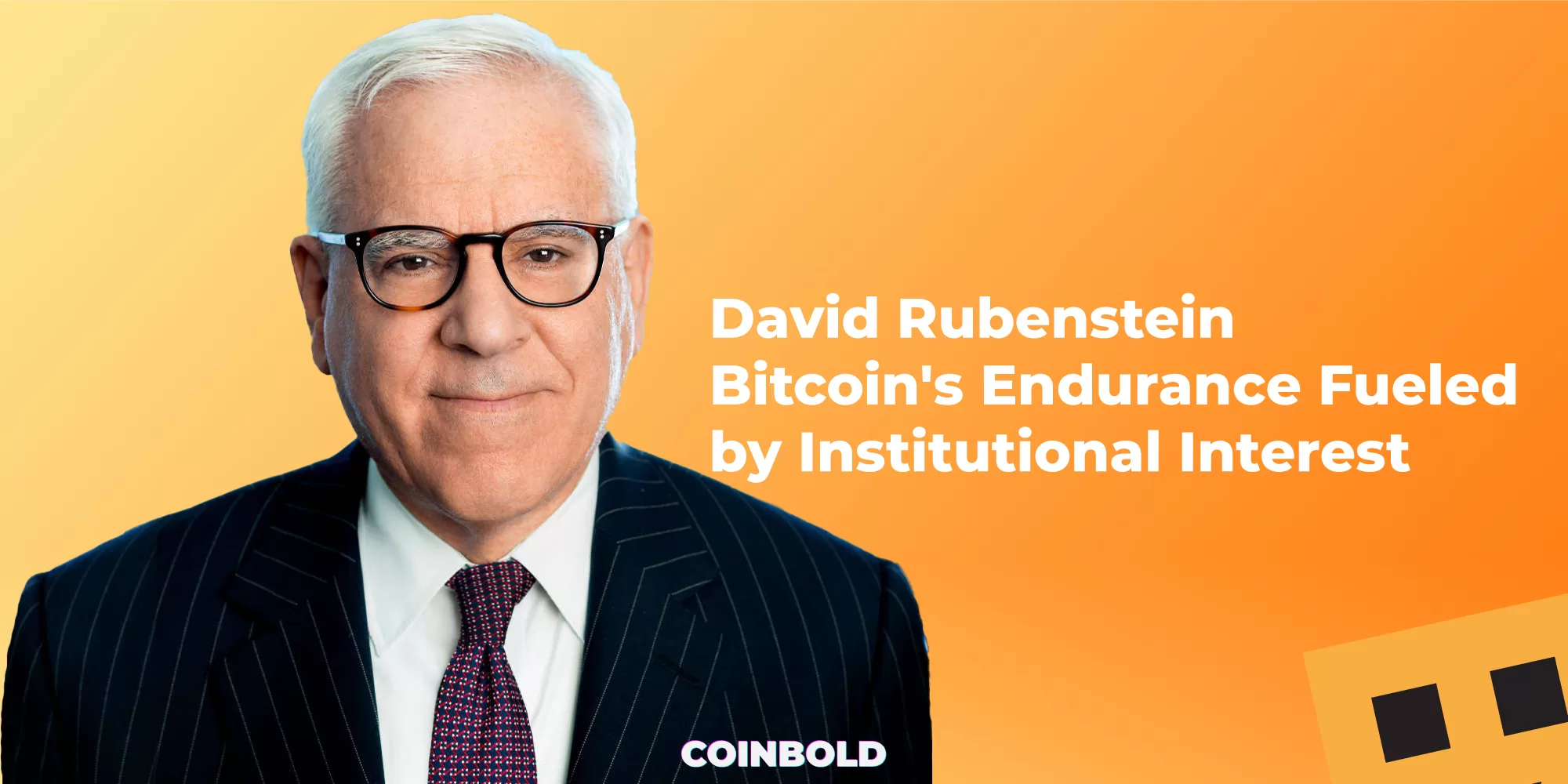David Rubenstein, the co-founder and co-chairman of the renowned Carlyle Group, shares his conviction that Bitcoin’s lasting presence is attributed to the burgeoning interest from institutional players. With a notable emphasis on institutional adoption, Rubenstein cites examples like BlackRock’s pursuit of a spot bitcoin ETF application and the global clamor for a decentralized form of currency free from governmental control.

Institutional Interest Paves the Way
In an insightful interview, the billionaire private equity magnate David Rubenstein asserted, “A lot of people around the world want to be able to trade in a currency that their government can’t know what they have, and they want to be able to move it around rightly or wrongly, and so I don’t think bitcoin is going away.” Rubenstein’s viewpoint stems from the observable trend of institutions embracing the cryptocurrency realm.
A Missed Opportunity and Shifting Perceptions
Reflecting on his own journey, David Rubenstein admitted to the regret of not purchasing Bitcoin when it stood at $100. However, as financial giants like BlackRock manifest their interest, Rubenstein predicts a shift in perception. He suggests that those who once dismissed cryptocurrencies and the industry might be compelled to reevaluate their stance.
The Establishment’s Acknowledgment
The turning point, according to Rubenstein, is the change in stance by influential figures. He notes, “What’s happened is people made fun of bitcoin and other crypto currencies, but now the establishment, Larry Fink at BlackRock, is now saying they’re going to have an ETF if approved by the government in bitcoin, so you’re saying, Wait a second, the mighty BlackRock is willing to have an ETF in bitcoin, maybe bitcoin is going to be around for a while.”
Strategic Indirect Involvement
While David Rubenstein himself does not possess direct cryptocurrency holdings, he does invest in companies that facilitate crypto trading. This strategic indirect involvement highlights his recognition of the transformative potential of the cryptocurrency ecosystem.
A Regulatory Shift
Rubenstein also drew attention to recent developments within the U.S. Securities and Exchange Commission (SEC) under the leadership of Chair Gary Gensler. He emphasized that Ripple’s recent legal victory against the SEC underscores the regulator’s inability to convincingly label cryptocurrencies as “bad.” This precedent sets a noteworthy tone for the evolving regulatory landscape.
As institutional interest continues to grow and influential players like David Rubenstein embrace the cryptocurrency space, his insights reinforce the enduring nature of Bitcoin in a rapidly evolving financial landscape.

